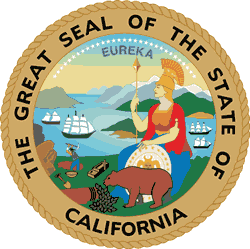Online poker giant PokerStars apparently is not content with its recent success in gaining a partner for New Jersey online gambling – apparently the company is now looking to enter the California online gambling market, providing regulation is passed in that state.
PokerStars likely to partner with southern California casino
According to sources close to the situation, former United States Representative and PokerStars lobbyist Dick Gephardt has been telling aides and others in the state capitol of Sacramento that PokerStars is close to reaching a pact with Hawaiian Gardens, a casino located in the southern California town of the same name.
While California has yet to enact online gambling legislation, a draft bill, being called the Pechanga Bill, is seen as a solid contender for passage. That bill, like many of the other pieces of iGaming legislation that have been floated both in California and around the nation, includes a so-called “bad actor” clause that would restrict online gaming companies that continued to operate US-facing real-money gambling sites after the 2006 passage of the UIGEA from entering the regulated market.
The Pechanga Bill, named after yet another southern California land-based casino, is viewed as having the best potential for success due to its strong tribal support. The Pechanga Tribe operates a casino outside of the city of San Diego.
Whether or not PokerStars’ attempt to gain a foothold in California will meet with success remains to be seen, however industry pundits expect that the road will be quite tough, as tribal interests are incredibly powerful in the Golden State and certainly will be resistant to opening the market to offshore, commercial interests.
Bad actor clause prohibits PokerStars from Nevada licensing
Such restrictions have already prevented PokerStars from seeking a license to operate an online poker room in the state of Nevada, which was the first (and so far remains the only) state to introduce a regulated online gambling site.
Nevada limits online gambling to poker only. The first site, Ultimate Poker, went live in late April and despite a couple of early hiccups, experienced a successful launch.
PokerStars also unsuccessful in Delaware
PokerStars was similarly luckless when it came to entering the Delaware online betting market. Though comprehensive Internet gambling has been approved in the state, meaning that in addition to online poker other types of games such as classic casino standards like blackjack and baccarat can be offered there as well, only one company was selected to operate in Delaware.
The Delaware Lottery, which will oversee the iGaming market in the state, chose 888 as the primary vendor. All of the online gambling in Delaware will operate on a single platform, which will be overseen by 888 in partnership with Scientific Games Corporation. Sites are expected to go live there sometime this fall.
A win for the company in the Garden State
One state in which PokerStars can count a victory is New Jersey. Last week, the company announced that it had reached a deal to operate an Internet gaming venture in partnership with Resorts, Atlantic City’s oldest land-based casino.
The Resorts agreement came on the heels of a legal setback for the parent company of PokerStars, the Rational Group, when earlier this month a judge upheld a court ruling in favor of the ailing Atlantic Club Casino Hotel, in which PokerStars was in negotiations to purchase.
The Atlantic Club terminated the deal when PokerStars failed to acquire an interim operating license before an outside date stipulated in the purchase contract the two parties signed back in December of 2012. The Atlantic Club, which ranks among Atlantic City’s worst-performing properties, was allowed to keep $11 million that PokerStars had already paid toward a $15 million purchase price.
As in Delaware, real-money online gambling sites are expected to be up and running in New Jersey in the fall, reportedly before the Thanksgiving holiday.

